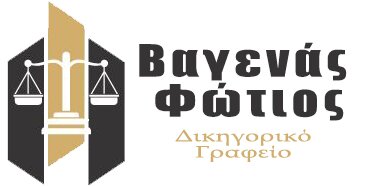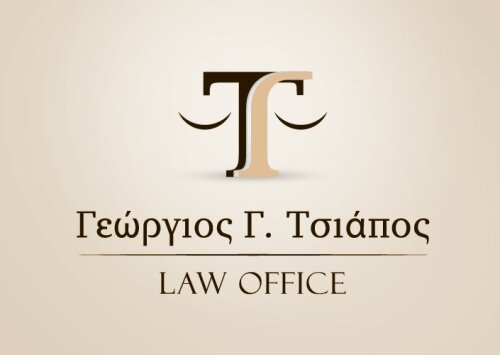Best Collaborative Law Lawyers in Serres
Share your needs with us, get contacted by law firms.
Free. Takes 2 min.
Free Guide to Hiring a Family Lawyer
List of the best lawyers in Serres, Greece
About Collaborative Law in Serres, Greece
Collaborative Law is a modern approach to resolving legal disputes, particularly in the context of family law, that emphasizes cooperation, open communication, and resolution outside of court. In Serres, Greece, Collaborative Law allows parties in dispute to work together with their legal representatives and possibly other professionals, such as financial advisors or child specialists, to find mutually acceptable solutions. This process is guided by a commitment to avoid litigation, reduce conflict, and foster respectful problem-solving. Collaborative Law is gaining traction in Serres as an alternative to the adversarial court system, especially for divorce, child custody, property division, and other sensitive matters.
Why You May Need a Lawyer
Engaging a lawyer experienced in Collaborative Law can be crucial in various situations. Common reasons include:
- Divorce and Separation: When both spouses wish to end their marriage amicably and seek solutions that work for everyone, especially children.
- Child Custody and Parenting Plans: For parents aiming to build parenting agreements without a contentious court battle.
- Division of Assets and Liabilities: To ensure a fair division of marital property, debts, and household items.
- Support Agreements: Crafting child or spousal support agreements that reflect the needs and capabilities of both parties.
- Business Disputes Among Family Members or Partners: To resolve conflicts in family-run businesses without damaging personal relationships.
- Avoiding Litigation: When both parties prefer to avoid the uncertainty, costs, and public nature of court proceedings.
Lawyers trained in Collaborative Law facilitate open dialogue, help clients understand their rights and obligations, and keep everyone focused on achieving a constructive outcome.
Local Laws Overview
In Serres, Greece, Collaborative Law processes are rooted in the broader Greek legal system, which recognizes the importance of alternative dispute resolution methods. Key aspects include:
- Mediation and Collaboration Recognized: Greek law increasingly encourages out-of-court settlements, including collaborative approaches for family and civil matters.
- Voluntary Participation: Parties must willingly choose Collaborative Law, committing to transparency and cooperation.
- Confidentiality: Discussions and negotiations remain confidential and cannot be used in court if the process fails and litigation becomes necessary.
- Professional Guidance: Each party is supported by their own collaborative-trained lawyer, ensuring balanced advice and support.
- Written Agreements: Resolutions reached collaboratively are formalized in legally binding agreements, which may be submitted to the courts for approval, particularly in cases involving children or property settlements.
- Local Adaptations: Procedures and documentation may be tailored to local practices in Serres, respecting specific needs and cultural nuances of the area.
While Greek law provides the structure, the local legal community in Serres plays an important role in supporting and facilitating collaborative resolutions.
Frequently Asked Questions
What is Collaborative Law?
Collaborative Law is a dispute-resolution process where parties and their lawyers commit to resolve issues through cooperative negotiation rather than going to court.
How does Collaborative Law differ from traditional divorce or litigation?
Unlike litigation, Collaborative Law fosters communication and cooperation. The parties work together to reach a settlement, and if they cannot agree, new lawyers must be hired for court, encouraging participants to focus on resolution.
Is Collaborative Law legally recognized in Greece and Serres?
Yes, Greek law supports alternative dispute resolution methods, including collaborative processes, for family and civil matters.
Who can participate in Collaborative Law in Serres?
Any parties in a dispute who wish to resolve their issues voluntarily and respectfully, especially in family law contexts like divorce, custody, and property division, can participate.
Are the agreements reached through Collaborative Law binding?
Yes, once both parties sign the agreement and, where necessary, submit it to the court for approval, it becomes legally binding.
What happens if an agreement cannot be reached?
If collaboration fails, the parties may pursue litigation, but they must hire new lawyers because collaborative lawyers cannot represent them in court.
Is the collaborative process confidential?
Yes, confidentiality is a core principle of Collaborative Law. Discussions during the process cannot be disclosed or used if the case proceeds to litigation.
How long does the Collaborative Law process typically take?
The duration varies depending on the complexity of the issues, but it is usually faster than going to court since it avoids lengthy litigation procedures.
What are the costs involved in Collaborative Law?
Costs are generally lower than court proceedings, as Collaborative Law reduces legal fees and time spent on disputes. However, each party pays for their lawyer and any relevant experts.
Can Collaborative Law be used for matters other than divorce?
Yes, Collaborative Law is also suitable for child custody, business disputes among family members, or any civil matter where parties seek a cooperative resolution.
Additional Resources
For those seeking more information or assistance, the following resources in Serres and Greece can be helpful:
- Serres Bar Association: Provides referrals to lawyers trained in Collaborative Law and related services.
- Greek Ministry of Justice: Offers information on alternative dispute resolution policies and procedures.
- Collaborative Law Professional Networks: These groups help connect individuals with experts and information on Collaborative Law practices.
- Family Mediation Centers: Offer guidance and support for families navigating disputes outside of court.
- Local NGOs and Support Groups: Many community organizations in Serres provide emotional and practical support for those involved in family disputes.
Next Steps
If you are considering Collaborative Law to resolve a legal matter in Serres, Greece, take the following steps:
- Consult with a lawyer who is trained in Collaborative Law and familiar with local practices in Serres.
- Learn about your rights, obligations, and the collaborative process to determine if it is appropriate for your situation.
- Discuss with the other party the possibility of using Collaborative Law and, if both agree, begin the process together.
- Prepare relevant documents and information to facilitate cooperative discussions and negotiations.
- Stay open to compromise and prioritize respectful communication to reach a satisfactory resolution for all involved.
Taking these steps will help you navigate legal challenges in a constructive way and secure a stable outcome for your future.
Lawzana helps you find the best lawyers and law firms in Serres through a curated and pre-screened list of qualified legal professionals. Our platform offers rankings and detailed profiles of attorneys and law firms, allowing you to compare based on practice areas, including Collaborative Law, experience, and client feedback.
Each profile includes a description of the firm's areas of practice, client reviews, team members and partners, year of establishment, spoken languages, office locations, contact information, social media presence, and any published articles or resources. Most firms on our platform speak English and are experienced in both local and international legal matters.
Get a quote from top-rated law firms in Serres, Greece — quickly, securely, and without unnecessary hassle.
Disclaimer:
The information provided on this page is for general informational purposes only and does not constitute legal advice. While we strive to ensure the accuracy and relevance of the content, legal information may change over time, and interpretations of the law can vary. You should always consult with a qualified legal professional for advice specific to your situation.
We disclaim all liability for actions taken or not taken based on the content of this page. If you believe any information is incorrect or outdated, please contact us, and we will review and update it where appropriate.









